
The rocky 1960s origins of online dating
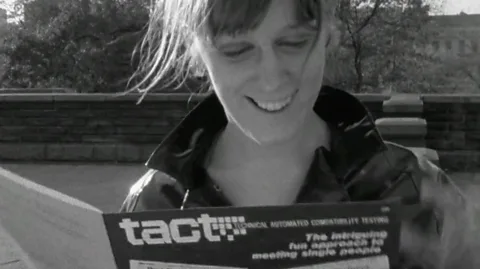 BBC(Credit: BBC)
BBC(Credit: BBC)In 1966, the BBC's Tomorrow's World visited a party in New York organised by the electronic dating service Tact, or Technical Automated Compatibility Testing. Around 2,000 singles were invited to Manhattan to try out this modern method of matchmaking.
In 1788, a man going by the name of "AB" placed New York's first known personal ad in the Impartial Gazetteer, according to historian Francesa Beauman. He was seeking a woman "under 40, not deformed, and in possession of at least one thousand pounds". Describing himself as "a young gentleman of family and fortune, who is lately come to town", the ad was the Tinder bio of its day. Whether AB had any replies to his ad is unknown. But nearly 200 years later, New York was the home of another novel approach to dating – computer matchmaking.
Invented by Bob Ross (a computer programmer at IBM, not the painter), and accountant Lewis Altfest, Tact – or Technical Automated Compatibility Testing – launched in New York 60 years ago, in 1965. First confined to the Upper East Side, it soon expanded to the entire city and had thousands signing up to be matched by computer. Each hopeful had to pay $5 (£2) and fill in a questionnaire, which would then be used to match people "on three levels", according to Ross: socio-cultural factors, opinions and values, and psychological factors. The answers were fed into the computer, which would then spit out supposed matches of the opposite gender. Same-sex dating was not an option. "Tact is not a lonely-hearts club," Ross told the BBC's Tomorrow's World. "It's not a marriage brokerage service. It's a new fun way of meeting new people." He pointed out that it was open to "all fun-loving people between 18 and 45", and added: "People go into Tact for a number of reasons. Some of the people go into it just to meet new people, to get a lot of dates… some people want to get more serious, they are interested in forming a more lasting relationship, and then there are people who just want to get married."
WATCH:'I filled mine and I received nine names. I called up two of them'.The matchmaking questions were approved by psychologist Dr Salvatore V Didato, who felt there was "a great social need" for services such as Tact. He complained of other services, "They say that they match people on many, many variables, but it winds up that they match them only on age, sex, religion, and height, or something like that." The Tact questionnaire went further by including a series of statements with which respondents had to either agree or disagree. The BBC report features responses from a typical customer: "I worry over my relationships with people – yes. I enjoy people who express affection freely – yes. Most of the time I act as an independent – no. I enjoy going to parties – yes."
While Tact was at the crest of a new technological wave, it was not quite the first computer-aided dating service. The two inventors had been inspired by Operation Match, which had been started earlier that year by Harvard students – decades before some students at the same university would create another computer-powered way for people to connect: Facebook.
In History
In History is a series which uses the BBC's unique audio and video archive to explore historical events that still resonate today. Subscribe to the accompanying weekly newsletter.
In 1965, computers were still novel. Operation Match had to rent one of the university's computers for $100 an hour. It quickly proved popular, with thousands of students sending in questionnaires. "You thought the computer was god, and the computer knew all," co-creator Jeff Tarr told the BBC's Witness History in 2014. Coincidentally, Tarr's daughter would go on to marry one of the creators of Match.com, one of the first internet dating sites. The computer provided reassurance: instead of relying on luck when finding your partner, you could be algorithmically matched to your soulmate.
WATCH: 'Tact charges $5 to supply from four to 20 to 30 dates over a four month period'.The 1960s were a time of revolution. In the United States, the civil rights and second wave feminism movements were in full flow. Social norms were changing, and technology was developing quickly, too: the arrival of the computer coincided with society's increased permissiveness. By 1969, computer dating – or at least the idea of it – was mainstream enough to feature as a storyline in Bewitched, the supernatural sitcom. Samantha's cousin Serena (Elizabeth Montgomery plays both characters) signs up to a computer dating service to find a mortal to marry, only to be matched with a warlock. Even Bob Ross himself found love through Tact – although it wasn't thanks to the computer. According to a New Yorker article published in the New Yorker in 2011, he eventually married a journalist who interviewed him about the project.
Tact's thousands of willing customers signalled a shift away from the more formal courtship culture of the first half of the century, and towards more modern attitudes. However, these early computer matchmaking services did not last long. While some people found their perfect partners, the services had a few fatal limitations. Because the services were primarily aimed at middle-class college students and graduates, there was a finite pool of potential matches. Also, the system was inefficient – it could be weeks between sending off your questionnaire and receiving your matches, who you then had to contact by phone or post. The parties organised by Tact were an attempt to get matches to mingle despite the distances that might be involved. Even then, it could still be awkward. The BBC's report pointed out that even "a public relations man present couldn't get this party going until after dark," despite a prize of "a big night out on the town" for the most compatible couple present. Possibly the paper sign hung between two bins did not inspire confidence in the service.
True love and artificial intelligenceThe questions left something to be desired, too. As well as all the basic demographic and attraction-related queries, the form's "dislikes" section had options such as "homosexuals" and "interracial couples". The questionnaire also played to stereotypes: according to the New Yorker, men were asked to rank women's hairstyles, whereas women could specify where they could find their ideal man: chopping wood, painting in a studio, or in a garage.
More like this:
• The risqué romcom that defined a genre
• The man behind the puzzle that 99% can't solve
• Gloria Steinem on the trailblazing Ms Magazine
While the creators were proud of the detail in their "three levels" of compatibility testing, their Cupid's arrows weren't always on target. "We matched an older brother with his younger sister," admitted Ross. "That didn't work out too well." He also said they'd had "a number of people who weren't too satisfied after they've gone out". On Tomorrow's World, one potential client quizzed Dr Didato on the robustness of the matching computer, after a bad experience with another service. "She specified an age limit and gets some guy 20 years older!"
Still, while Tact, Operation Match and other similar services now seem comparatively quaint, people keep using technology to guide them towards romance – from the first personal ads in newspapers to video dating services, from online dating sites to AI-aided apps. According to Pew Research, one in 10 people who had partners in the US in 2023 met them via online dating. When it comes to matters of the heart, it seems, we can't help falling in love with the latest innovations.
--
For more stories and never-before-published radio scripts to your inbox, sign up to the In History newsletter, while The Essential List delivers a handpicked selection of features and insights twice a week.
For more Culture stories from the BBC, follow us on Facebook, X and Instagram.
In HistoryTechnologyRomanceLoveFeaturesWatch Inside the high-security facility tackling digital threats
Inside the high-security facility tackling digital threatsBBC reporter Marc Cieslak explores a high-security hub monitoring digital threats ahead of the US election.
5 Oct 2024Technology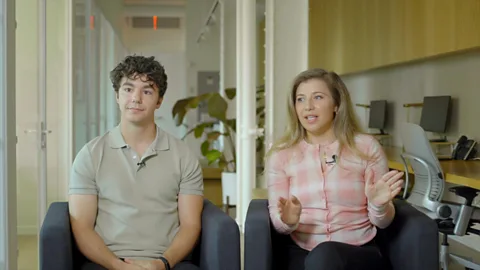 'A tech firm stole our voices - then cloned and sold them'
'A tech firm stole our voices - then cloned and sold them'Two voice-over artists were listening to a podcast when they heard their own stolen AI-generated voices.
19 Sep 2024Innovation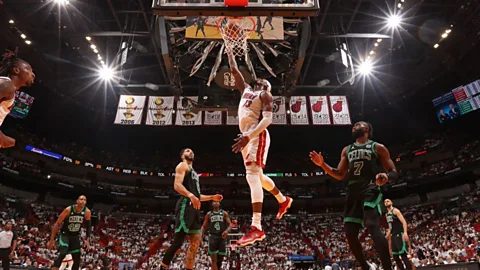 Miami Heat: the basketball team turned tech startup
Miami Heat: the basketball team turned tech startupThe iconic team has developed technology which spread to concerts, nightclubs, and other sports teams.
7 Sep 2024Technology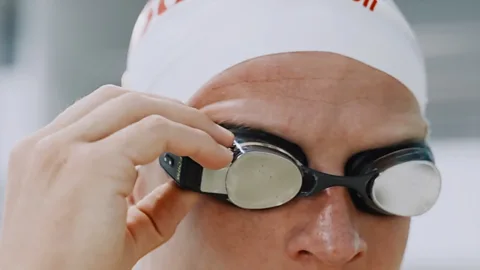 Testing out smart swim goggles for the Paris Games
Testing out smart swim goggles for the Paris GamesA new generation of smart goggles provide real time visual feedback to enhance athletic performance.
16 Aug 2024Technology How technology will power the opening ceremony
How technology will power the opening ceremonyA new network along the Seine in Paris will broadcast Olympic festivities from the river.
18 Jul 2024Technology Why Olympic venues are using digital twins
Why Olympic venues are using digital twinsA peak inside both the real and virtual new Aquatic Centre built for the Paris Games.
17 Jul 2024Technology White gold rush: Harvesting lithium from Great Salt Lake
White gold rush: Harvesting lithium from Great Salt LakeCould the United States' largest saltwater lake hold the key to its energy future?
13 May 2024Technology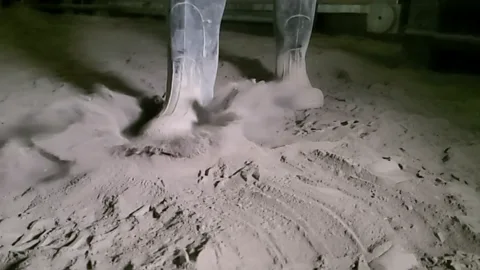 Why are scientists making 'moon dust'?
Why are scientists making 'moon dust'?Space agencies around the world need lunar soil.
10 May 2024Innovation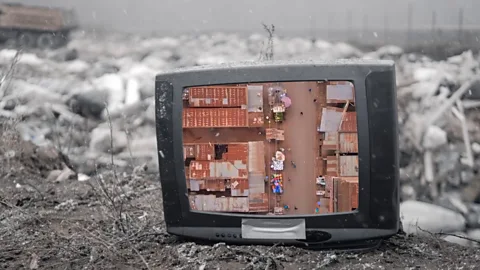 Where do your old mobile phones and TVs go to die?
Where do your old mobile phones and TVs go to die?Dandora sits on the outskirts of Nairobi, Kenya, and 800 tonnes of garbage is dumped on the site every day.
3 May 2024Technology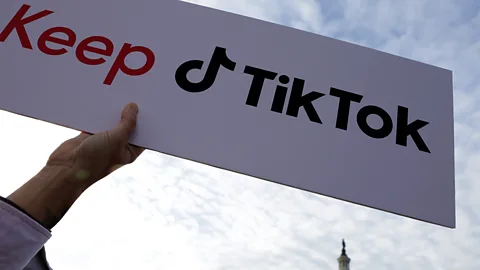 How a US TikTok ban will affect Gen Z
How a US TikTok ban will affect Gen ZWe spoke to two influencers who use the short form video platform to raise awareness and inform.
13 Mar 2024Technology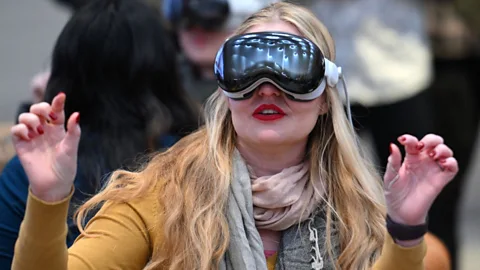 The history of virtual reality that led to Apple Vision Pro
The history of virtual reality that led to Apple Vision ProApple is turning science fiction into reality but was VR meant to be used like this?
7 Feb 2024Technology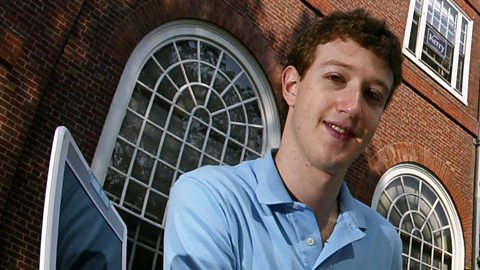 Mark Zuckerberg's early years
Mark Zuckerberg's early yearsWatch the full documentary Mark Zuckerberg: The Billionaires Who Made Our World on BBC Select.
2 Feb 2024Technology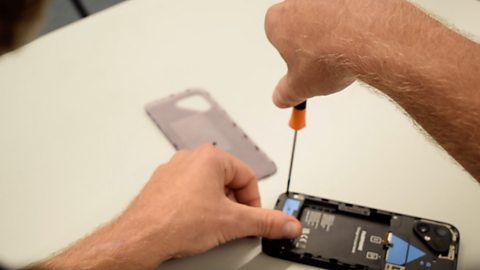 The smartphone you can take apart and fix yourself
The smartphone you can take apart and fix yourselfFairphone's technology aims to lower our environmental footprint.
9 Nov 2023Technology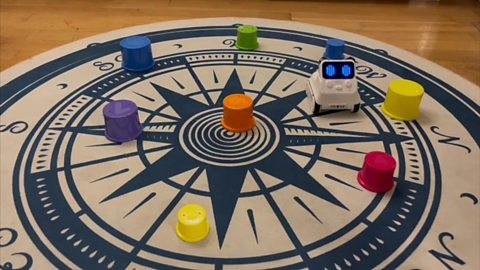 Coding: How hard is it to learn?
Coding: How hard is it to learn?The BBC tests out kits from Lego, MakeBlock and the Micro:Bit Foundation to try to learn to code.
9 Nov 2023Technology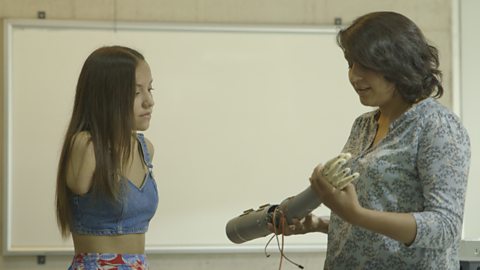 'Making robots is literally living my dream'
'Making robots is literally living my dream'Daniela Saez developed an interest in robotics from the age of 12.
9 Nov 2023Technology Have scientists discovered how to read our thoughts?
Have scientists discovered how to read our thoughts?With the potential rise in technology that can know and change our thoughts, how do we protect ourselves?
9 Nov 2023Technology The Chinese smart city that knows people's personal habits
The Chinese smart city that knows people's personal habitsLeading tech experts warn about the future that's being created with unregulated artificial intelligence.
19 May 2023Technology Can X-planes solve the sonic boom problem?
Can X-planes solve the sonic boom problem?X-planes helped pave the way for the US space programme and now they're taking the boom out of supersonic travel.
18 Apr 2023Technology Why your life is probably a simulation
Why your life is probably a simulationWhy increasingly advanced computer simulations are prompting humanity to ask; is our reality what we think it is?
13 Apr 2023Technology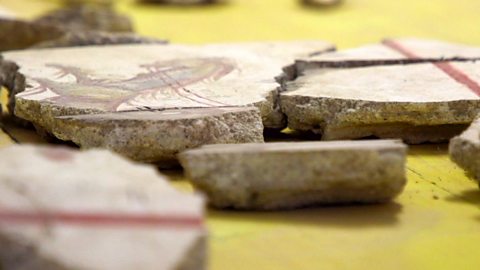 The Pompeiian fresco puzzle getting help from robots
The Pompeiian fresco puzzle getting help from robotsImage recognition will be used to help re-build the past piece by piece.
19 Apr 2022TechnologyMore14 hrs ago The dark side of Uzbekistan's tourism boom
The dark side of Uzbekistan's tourism boomThe Uzbekistan government is on an ambitious tourism drive – but is sparring with heritage experts over how to protect its historical sites.
14 hrs agoTravel17 hrs ago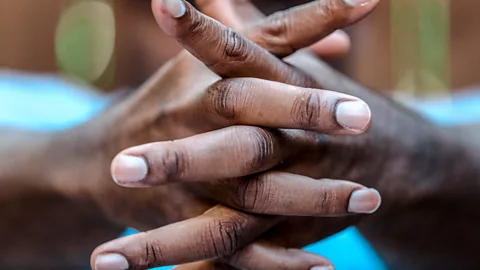 What your fingernails can reveal about your health
What your fingernails can reveal about your healthFrom the mysterious white flecks that sometimes appear on nails to unusual ridging or changes in thickness, what do these features really mean?
17 hrs agoFuture2 days ago The French cocktail born from a banned spirit
The French cocktail born from a banned spiritEver since absinthe was outlawed due to rumours it led to insanity, this simple drink has become the nation's go-to apertif.
2 days agoTravel2 days ago The satellites that will skim the sky
The satellites that will skim the skyThere's a new race in space, but it's not where you might think. It's happening close to home – in the nearest bit of space, right on the edge of Earth's atmosphere.
2 days agoFuture2 days ago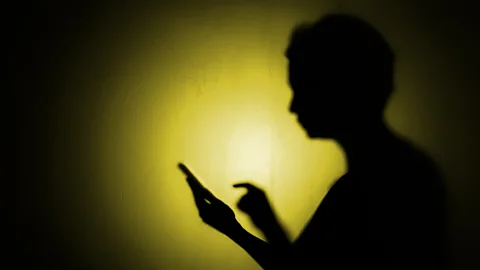 How big tech ad money helped fund child abuse
How big tech ad money helped fund child abuseSome of the biggest tech companies in the world served ads on a website featuring images of child abuse, helping to fund its operations.
2 days agoFutureAP by OMG
Asian-Promotions.com |
Buy More, Pay Less | Anywhere in Asia
Shop Smarter on AP Today | FREE Product Samples, Latest
Discounts, Deals, Coupon Codes & Promotions | Direct Brand Updates every
second | Every Shopper’s Dream!
Asian-Promotions.com or AP lets you buy more and pay less
anywhere in Asia. Shop Smarter on AP Today. Sign-up for FREE Product Samples,
Latest Discounts, Deals, Coupon Codes & Promotions. With Direct Brand
Updates every second, AP is Every Shopper’s Dream come true! Stretch your
dollar now with AP. Start saving today!
Originally posted on: https://www.bbc.com/culture/article/20250206-the-rocky-1960s-origins-of-online-dating?ocid=global_culture_rss
